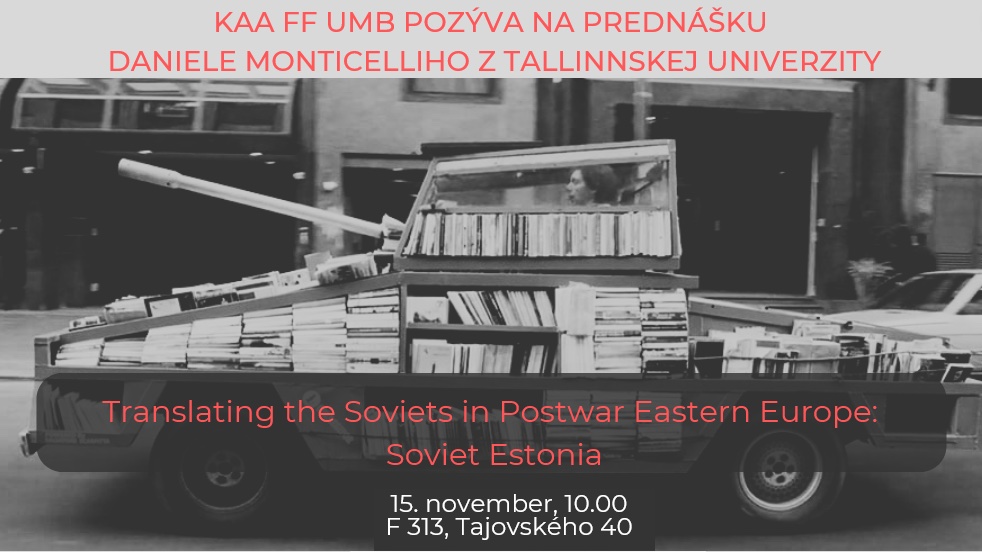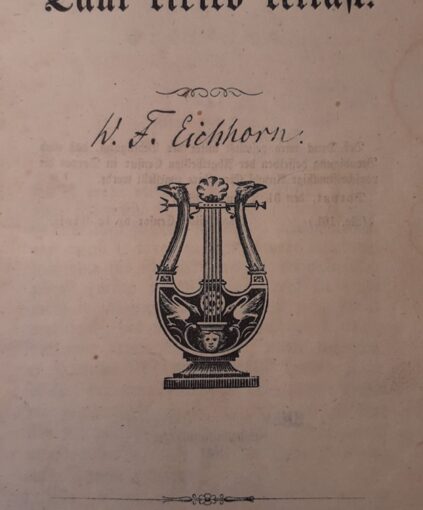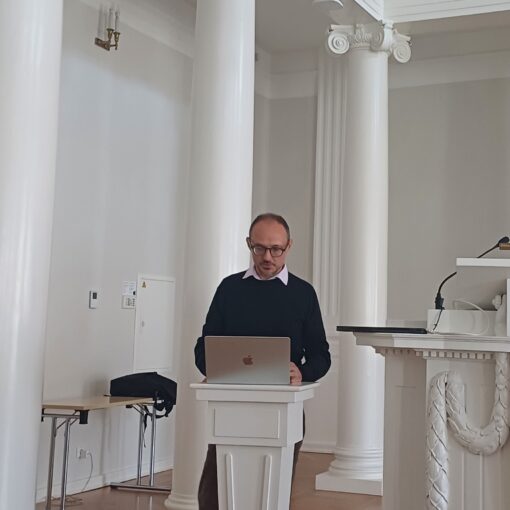Daniele Monticelli was invited to held a lecture to the researchers, teachers and graduate students of the Department of Translation Studies of Matej Bel University. The lecture took place on the 15th of November.

After the end of the Second World War, the institutions, societies and cultures of the Baltic Republics annexed by the Soviet Union and the socialist countries of Eastern Europe were radically transformed by a process that historians have called ‘Sovietisation’. If this primarily meant forced uniformation to the Soviet model, it is on the other hand clear that such a model had to come to terms with the specificities of local histories and cultures. The imitation of the Soviet model therefore entailed its ‘translation’ and adaptation in the specific local context of each country.
Through a series of examples of translation institutions and practices, the discussion of translation, and the reception of translations in Soviet Estonia from the post-war period to the end of the 1960s, the lecture analysed the tension between the automatisms of Sovietisation and the complexity that this process assumed when encountering the pre-existing local reality with all its inertia and resistance. A mixed method involving reconstruction of the institutional context of the translations, data and statistics, work on the archives, and analysis of the translations proves to be a very effective tool for better understanding the subtleties and even the contradictions of Soviet culture and society. A more nuanced image of Sovietisation emerges, which questions the radical binary oppositions (repression VS freedom, collaboration VS resistance, ideology VS truth, etc.) through which we are accustomed to conceiving the phenomenon of so-called totalitarianisms.


